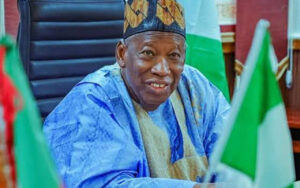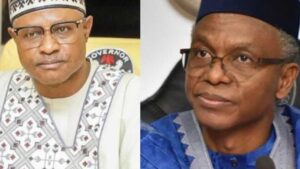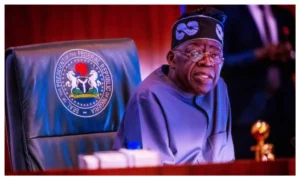
In Nigeria, power doesn’t always come from the ballot box. It doesn’t always wear agbada to the National Assembly or sit behind a government desk in Abuja. Some of the most powerful people in the country today do not hold any political office, yet their words move mountains, their presence opens doors, and their silence can shut down entire conversations.
These are the unelected power players of Nigeria — men and women who operate behind the scenes but shape the country’s political and economic direction in very visible ways.
Take the case of Aliko Dangote, Africa’s richest man. He does not need to hold a government position to influence policy. His company, Dangote Group, touches almost every sector of Nigeria’s economy — from cement and sugar to oil and gas. When Dangote speaks, presidents listen. His refinery project alone has shaped national discussions around fuel subsidy and local refining.
There’s also Mrs. Folorunsho Alakija, another billionaire and one of the most powerful women in Africa. Though not elected, her influence spans business, philanthropy, and even spiritual spaces. She has the ears of both spiritual leaders and political elites.
But not all unelected influencers are billionaires. Some are traditional rulers like the Ooni of Ife or the Emir of Kano. Though they hold no political office in today’s democratic structure, their influence remains strong, especially in their regions. They shape public opinion, calm tensions during crises, and even influence who gets selected or elected in local politics.
Religious leaders are another major force. People like Pastor E.A. Adeboye, Bishop David Oyedepo, and Sheikh Gumi have huge followings. Their sermons influence how millions of Nigerians vote, think, and act. Politicians know this — that’s why they often pay courtesy visits to churches and mosques during election season.
Social media has also given rise to a new breed of unelected power-brokers: influencers and digital activists. Think of Rinu Oduala, one of the key faces of the #EndSARS movement. She wasn’t elected, but her voice mobilised thousands of young Nigerians, forced national conversations, and even got international attention.
There’s also Aisha Yesufu, fearless and unfiltered. She doesn’t need a title to challenge the presidency, speak truth to power, or inspire civic action. Her face, raised fist and hijab have become iconic symbols of modern activism.
In Nigeria, “power without office” is real — and growing. From kingmakers in political parties to business moguls, from spiritual generals to activists, many people influence decisions without being voted in.
Some may argue that this is dangerous — that unelected power means zero accountability. That may be true in some cases. But in a country where trust in elected officials is low, people often look elsewhere for leadership, guidance, and inspiration.
Still, it’s important to ask: Should there be checks on these unelected influencers? Who holds them accountable when their actions affect millions? And how can we ensure that their influence benefits the country, not just their personal interests?
In the end, Nigeria’s democracy is not just about those in office. It’s also about those outside the system who continue to pull strings, shape opinions, and make things happen — for better or worse.
Power without office is not a Nigerian invention, but in Nigeria, it’s a lifestyle. And as 2027 approaches, we should watch these power players closely. They may not be on the ballot, but they will surely be in the room where decisions are made.




